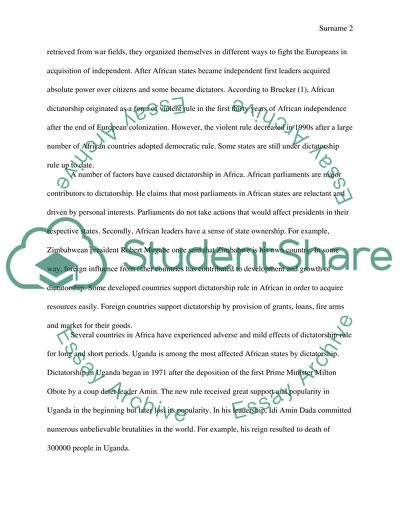Cite this document
(“Governance in Africa Essay Example | Topics and Well Written Essays - 1750 words”, n.d.)
Governance in Africa Essay Example | Topics and Well Written Essays - 1750 words. Retrieved from https://studentshare.org/social-science/1642984-governance-in-africa
Governance in Africa Essay Example | Topics and Well Written Essays - 1750 words. Retrieved from https://studentshare.org/social-science/1642984-governance-in-africa
(Governance in Africa Essay Example | Topics and Well Written Essays - 1750 Words)
Governance in Africa Essay Example | Topics and Well Written Essays - 1750 Words. https://studentshare.org/social-science/1642984-governance-in-africa.
Governance in Africa Essay Example | Topics and Well Written Essays - 1750 Words. https://studentshare.org/social-science/1642984-governance-in-africa.
“Governance in Africa Essay Example | Topics and Well Written Essays - 1750 Words”, n.d. https://studentshare.org/social-science/1642984-governance-in-africa.


